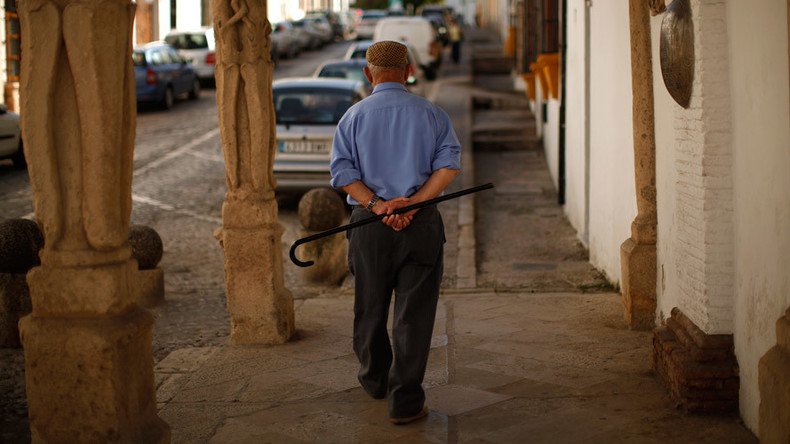Scientists say humans may have reached maximum lifespan

There may be a limit to how long we can live, according to new research which says it will be difficult to extend human lifespan without some sort of breakthrough that fixes all age-related problems.
The official record for the world's oldest person belongs to Jeanne Calment, a French woman who died in 1997 aged 122, and this longevity record is unlikely to be broken, according to an analysis published Wednesday in the journal, Nature.
"It seems extremely difficult if not impossible to break through that ceiling due to the complexity of the aging process," one of the researchers, Jan Vijg, a geneticist at the Albert Einstein College of Medicine in New York, said via email.
Humans will NEVER live past 125 years: The body cannot naturally pass beyond a certain life expectancy
— ciutadaindignat (@ciutadadelmon) October 5, 2016
https://t.co/nTQOZbZRaS
…
"In contrast to previous suggestions that human longevity can be extended ever further, our data strongly suggest that the duration of life is limited," researchers said.
Demographic study suggests 115 is a plausible "healthy living" lifespan. Says nothing about the possibilities for anti-aging therapies. https://t.co/LSMlgiScAi
— Sean Carroll (@seanmcarroll) October 5, 2016
In the new study, researchers analyzed mortality data from a global database. They found that while there have been progress in reducing deaths among children, women during childbirth and the elderly, the rate of improvement was slower for the very old, those over 100 years old.
However, if you live the average American lifestyle, "you may never reach your maximun life span." says Dan Buettner
— Jan and Mike Davison (@wellnesstrends) May 31, 2010
The scientists focused on deaths between 1968 and 2006, in France, Japan, Britain and the US, which are the four countries with the largest numbers of people who have lived longer than 110 years, according to the International Database on Longevity.
The researchers calculated the odds of someone reaching 125 years are less than 1 in 10,000, and they think the human lifespan more likely maxes out at 115 years.
Fascinating talk by @StevenAustad@MDIBL last nite feattrd on @MPBNnews. Let's #CureAging ! Living to be 150 https://t.co/7HpoZrtzuF
— Bob Morris (@drbobmorris) July 1, 2016
However, the new findings don't mean that researchers know for sure that humans will never live longer than 122 years, said Steven Austad, a professor of biology and aging at the University of Alabama at Birmingham, who was not involved in the study.
Austad said that the human lifespan could likely still be extended. Experiments on mice have shown that these animals live longer if their calorie intake is restricted or if their genes are manipulated, he said.
Key to longevity? Blocking 200+ specific genes boosts lifespan by 60%, study reveals http://t.co/kvRfP45G5rpic.twitter.com/cOt1tLkSZI
— RT (@RT_com) October 11, 2015
If researchers found medications or lifestyle factors such as special diets that are better than the ones known today, that could allow humans to live longer too, Austad said.
Instead of searching for a miracle cure, people should rather focus on eating better and exercise to stay healthy in their twilight years, said Dr. Thomas Perls, professor of geriatrics at Boston University.
Dr. Thomas Perls quoted on genetics, lifestyle factors in aging in @nytimes article: http://t.co/z4ZMPkJACW#Centenarian#longevity#genes
— BUSchool of Medicine (@BUMedicine) March 5, 2014
While the age of the 122-year-old French woman has been officially recorded, there have been numerous cases of people saying they were over 130 or even 140 years old before they died in countries such as India, China, Russia and Transcaucasia region states. Although some of them had passports to support their claim, it was said that without a confirmed birth certificate the age was not verifiable.
In Japan, known for its abundance of centenarians, the number of people aged 100 or older is well documented, and stood at staggering 65,692 in September, according to the country’s welfare ministry.













